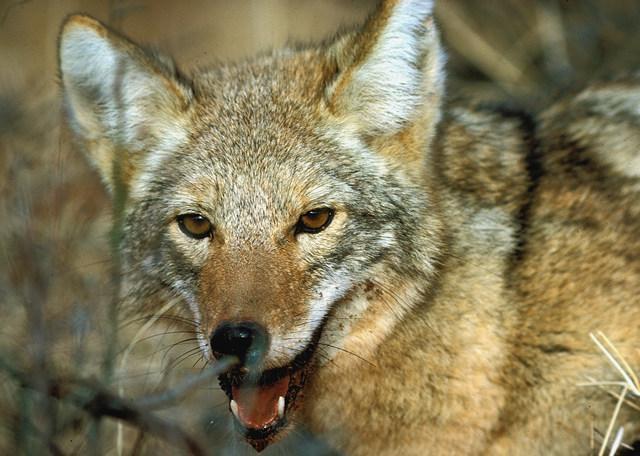
TPWD photo by Bill Reaves
North Texas coyote attacks unusual, not mirrored locally
Hays County authorities say they haven’t had any recent reports involving coyotes, but it’s a much different story in North Texas.
The Associated Press is reporting that four joggers in Frisco, near Dallas, have been attacked by a coyote within the past month. The most recent attack occurred Wednesday morning and the victim was hospitalized with neck wounds.
The AP said the first attacked occurred Oct. 26 but the animal was “scared away by another person.” Then on Nov. 1, a 9-year-old was “jumped” by one of the predators, receiving a minor injury. Then on Nov. 11, a police officer who saw a coyote following a jogger was able to scare the animal off with the patrol car’s siren.
Authorities there believe the same animal was responsible in all the attacks and said it is the object of a search by animal control officers.
Coyote attacks on humans are extremely rare, according to Texas Parks and Wildlife, though as the animals’ habitat disappears, small pets are increasingly seen as prey. Their chilling nighttime call has become familiar not only to rural dwellers but also to those who live in subdivisions only recently built in what was wild animal territory.
The TPWD offered some “common sense” precautions people can use:
- Don’t feed them. Keep pet food and water inside and garbage securely stored with locking lids or lids secured with bungee-type cords.
- Avoid putting matter like animal bones or fat in compost and keep compost piles covered
- Keep pets inside or in a kennel. If not, make sure they are under close supervision. Always walk pets on a leash, especially at night.
- Keep birdseed in feeders, not on the ground. Coyotes are drawn both to the seeds and to the rodents the seeds attract.
- Minimize clusters of shrubs, trees and other places that could provide cover to coyotes.
- Use noise making and other devices when coyotes are seen (check with local authorities recording any ordinances that may impact that strategy). Effective devices include portable air horns, motor vehicle horns, propane cannons, starter pistols, low-power pellet guns, slingshots and thrown rocks.
Although the TPWD says urban coyotes cannot be eliminated, trapping and other nuisance controls can be a part of a solution to the problem. Texas Wildlife Services partners with local governments in some areas. To find out if your area is included, call 210-472-5451 for the number of the nearest resource.











